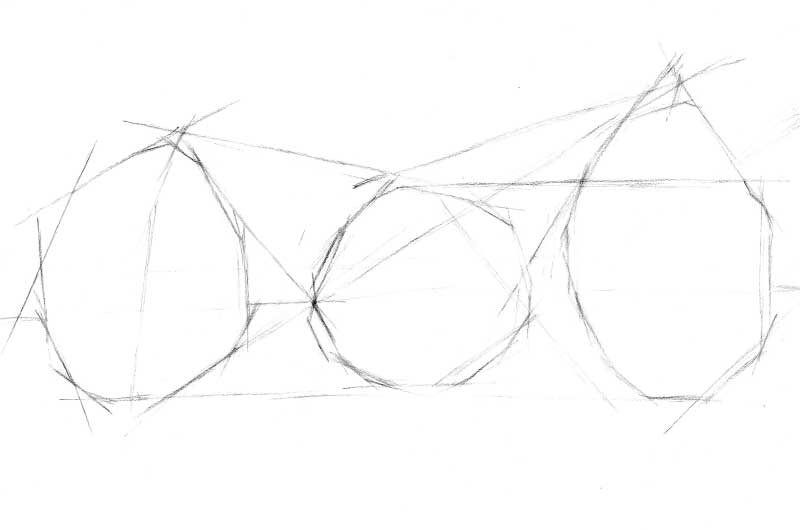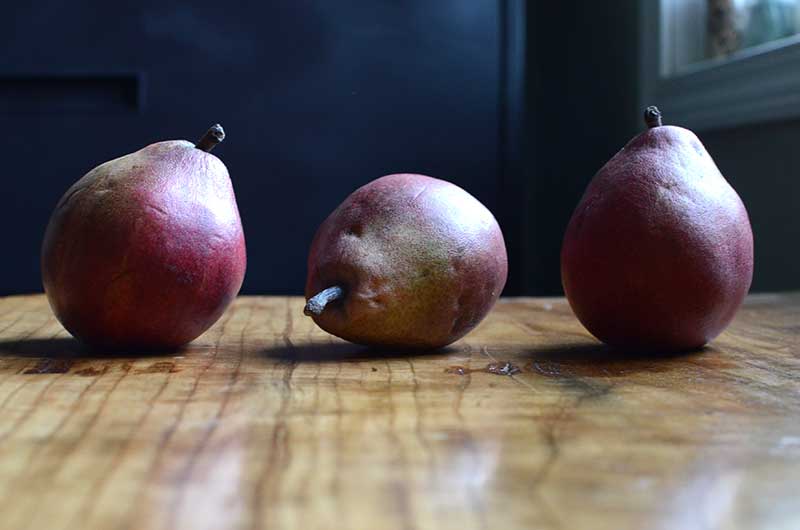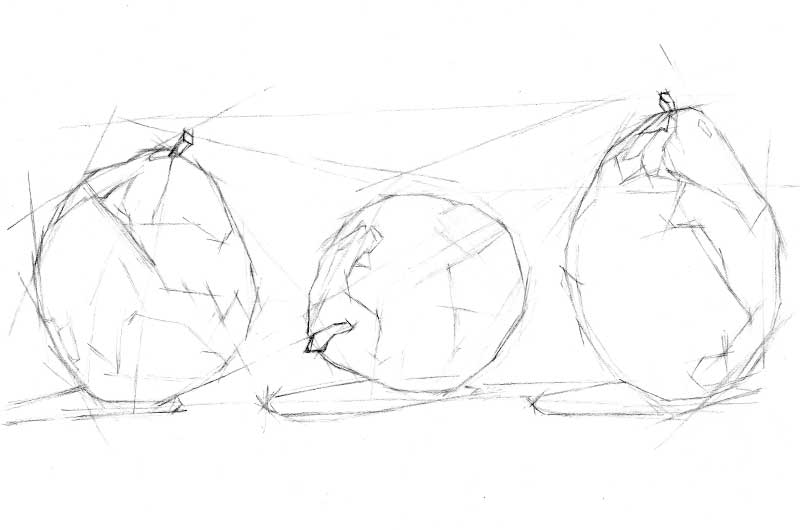getRealism
Want to create realism in art? You've come to the right place.

Drawing With Angles
- Importance of identifying key points on objects
- Importance of simplicity in initial sketches
- Techniques for accurately replicating angles
- Finding relationships between different objects
- Benefits of drawing with angles for accuracy
Drawing angles to achieve realistic proportions.
Learn this simple drawing technique today!
- Concept of viewing objects as dot-to-dot drawings
- Importance of identifying key points on objects
- Identifying and placing “dots”
- Locations: high points, low points, and prominent features
- Lightly Sketching the Largest Shapes
- Connecting the dots with straight lines
- Importance of simplicity in initial sketches
- Techniques for accurately replicating angles
- Using a pencil as a visual tool
- Drawing straight lines based on observed angles
- Developing the Inside Forms
- Observing and sketching shadow shapes
- Placing dots along significant points of shadow shapes
- Replicating angles
- Finding relationships between different objects
- Importance of crossing lines for final drawing composition
- Maintaining Proportion and Realism
- Common pitfalls of drawing one object at a time
- Benefits of drawing with angles for accuracy
- Emphasis on proportion and placement within the composition
I’m going to share a quick drawing secret with you. It requires a trip down memory lane to our childhood. This is one of the best secrets I ever learned for drawing realistically.
Do you remember doing dot-to-dot drawings? Each object was outlined with dots, and there was joy in watching the objects appear once the dots were connected with a series of short, straight lines. We'll begin this method by treating each object as a dot-to-dot.
Let’s get started! First, set up a still life with a few simple objects. I'm using pears for this demonstration. To draw with realism using angles, visualize each object as a dot-to-dot drawing for a moment. Place dots only on the highest points, lowest points, widest points, narrowest points, and most prominent features of the objects. These dots act like coordinates on a map. We will use them to map out the size and placement of each object as we draw.

Setting up a still life of pears.

Beginning to sketch still life of pears.

Drawing the shadow shapes.
Lightly sketch the largest shapes by connecting the dots with straight lines. Keep it simple; the goal is to replicate each angle as accurately as possible. To achieve this, hold a pencil up in front of your subject and turn it until it aligns perfectly with the angle between two dots. Then, move to your paper and draw a straight line at the same angle. Draw slowly and carefully. Map out the angles as you move across the forms. This method will help you draw the correct size and position the objects accurately in relation to one another.
Next, focus on the inside of the forms. Relax your gaze and observe the shapes of the shadows. Imagine placing dots along the highest, lowest, widest, and narrowest points of these shadow shapes. Carefully replicate these angles in your drawing. Identify a point on one object and find the angle to a prominent point on another object. Carefully replicate these angles one by one, extending lines across your composition as needed. Don’t worry about creating too many lines; they will blend into the final drawing and become inconspicuous. Consistently working point to point and creating angles that connect different objects will help develop the overall composition as a whole versus one object at a time.
Often, we tend to draw one item at a time, which can lead to objects being placed too far apart or drawing the wrong size, resulting in distortion. Drawing with angles helps to maintain proportion and keeps the drawing realistic.
Remember, realism in art is about creating a copy of what we see, an accurate representation of reality.
- Draw each object at the correct size
- Shade it with the appropriate values
- Replicate the angles as precisely as possible
- Everything needs to be in the right place
Conclusion:
Drawing with angles is similar to the triangulation technique. If you want to explore this method further, I encourage you to look up triangulation in drawing. I hope you find this approach helpful!
I'm rooting for you!